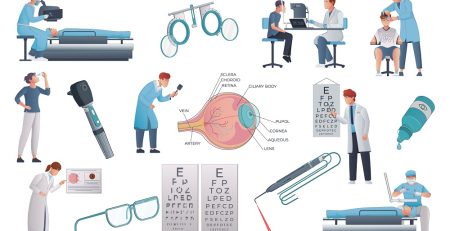A Comprehensive Guide to Dementia : Prevention, Early Signs, and Promising Studies
ADV Care2023-12-05T16:37:27-05:00Dementia, a progressive neurological disorder, poses a significant global health challenge. As the aging population continues to grow, understanding and addressing dementia becomes increasingly crucial. We’ll look at various aspects of dementia, including ways to prevent its onset, early signs and symptoms for timely intervention, and the latest promising studies that offer hope for the future.
Understanding Dementia:
Dementia is an umbrella term for a range of cognitive impairments that affect memory, thinking, behavior, and the ability to perform daily activities. Alzheimer’s disease is the most common form of dementia, followed by vascular dementia, Lewy body dementia, and frontotemporal dementia. While the specific causes of dementia vary, they often involve the accumulation of abnormal proteins in the brain, leading to nerve cell damage and cognitive decline.
Prevention Strategies:
While there is no guaranteed way to prevent dementia, certain lifestyle choices may help reduce the risk. Here are some evidence-based prevention strategies:
- Regular Physical Exercise: Engaging in regular aerobic exercises, such as walking, swimming, or dancing, has been shown to improve brain health and reduce the risk of cognitive decline.
- Healthy Diet: Following a balanced diet rich in fruits, vegetables, whole grains, lean proteins, and healthy fats can support brain health. The Mediterranean diet, in particular, has been associated with a lower risk of cognitive decline.
- Mental Stimulation: Keeping the brain active and engaged through activities like reading, puzzles, learning a new skill, or socializing can help maintain cognitive function.
- Management of Chronic Conditions: Effectively managing conditions like hypertension, diabetes, obesity, and high cholesterol can reduce the risk of cognitive impairment.
Early Signs and Symptoms:
Recognizing the early signs and symptoms of dementia is crucial for early intervention and treatment. While the specific symptoms vary depending on the type of dementia, common early signs include:
- Memory loss, especially recent events or important dates.
- Difficulty finding the right words or expressing thoughts.
- Challenges in planning and problem-solving.
- Confusion or disorientation in familiar surroundings.
- Changes in mood, personality, or behavior.
- Withdrawal from social activities or hobbies.
Promising Studies:
Numerous studies are underway to better understand dementia, develop effective treatments, and explore potential preventive measures. Here are a few current areas of research that hold promise:
- Early Detection Biomarkers: Researchers are investigating various biomarkers, such as specific proteins or genetic markers, that can indicate the presence of dementia before symptoms appear. Early detection can enable timely intervention and treatment.
- Immunotherapy: Immunotherapy approaches, aimed at targeting and clearing the abnormal protein accumulations in the brain, show promise in slowing down the progression of Alzheimer’s disease.
- Lifestyle Interventions: Studies are evaluating the effects of combining multiple preventive strategies, including diet, exercise, cognitive training, and social engagement, to determine their impact on reducing the risk of dementia.
- Drug Development: Researchers are exploring novel drug targets and therapies that could potentially modify the underlying disease processes, providing hope for more effective treatments in the future.
Dementia is a complex condition with devastating effects on individuals and their families. While prevention strategies and early intervention can make a difference, ongoing research holds the key to unlocking breakthroughs in understanding, treatment, and prevention. By staying informed, supporting research efforts, and adopting a proactive approach, we can collectively strive towards a world where dementia’s impact is minimized, and lives are improved.











